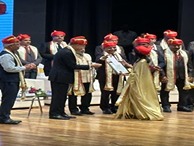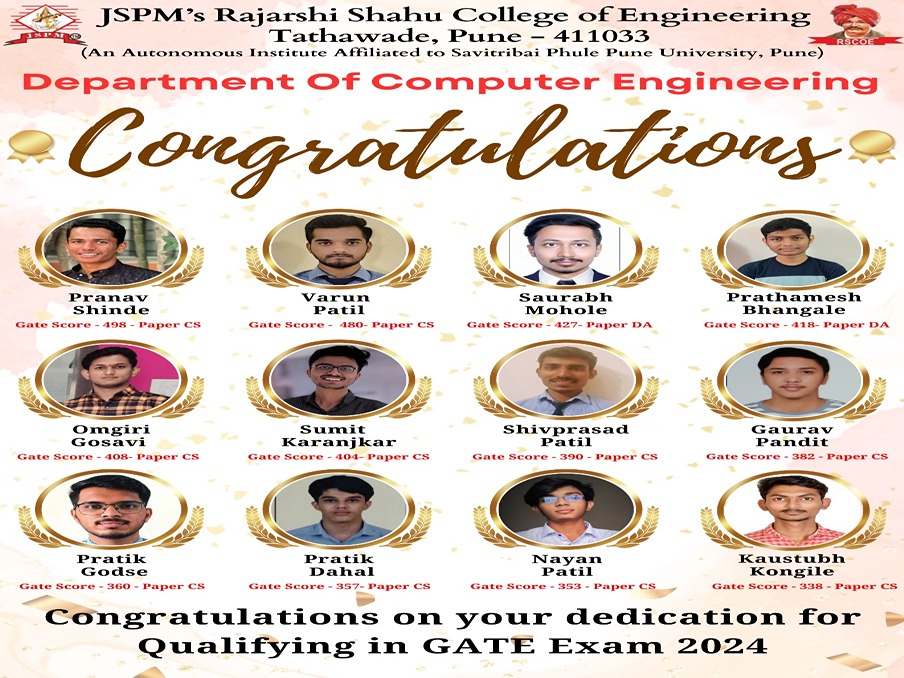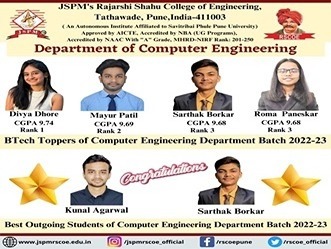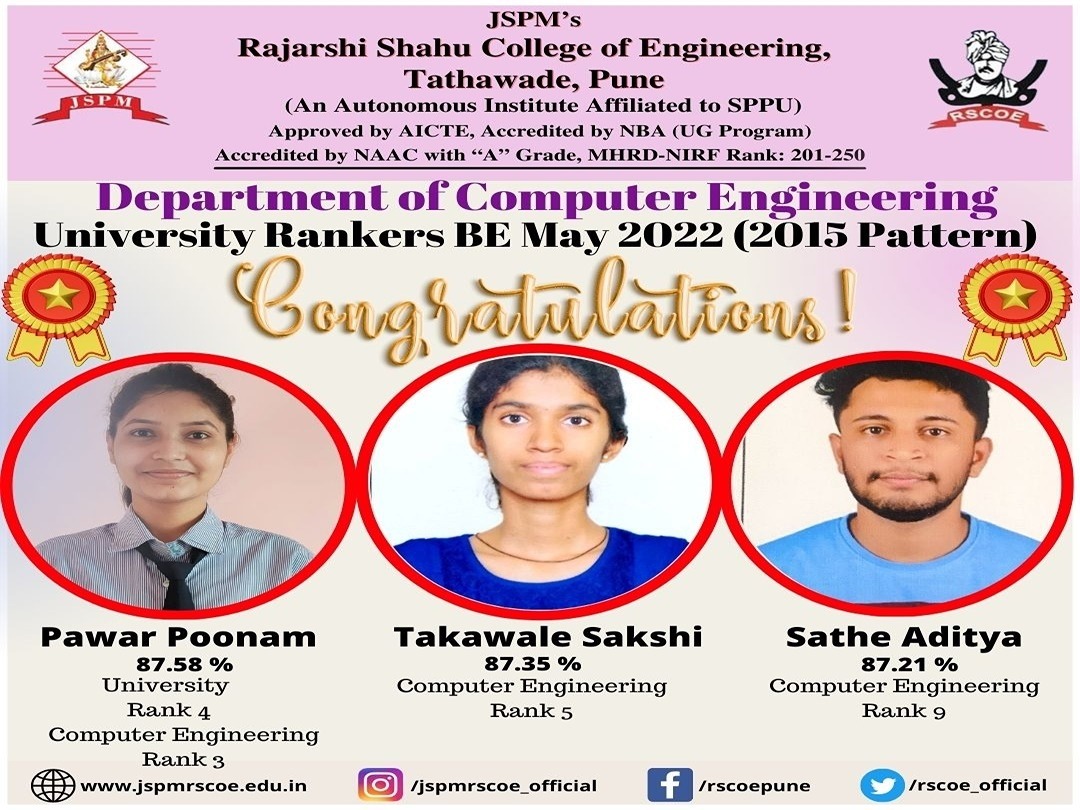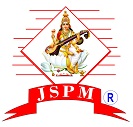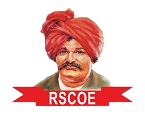Department Of Computer Engineering
About Department:
The Department of Computer Engineering, established in 2001 with an initial intake of 45 students, has now grown to an undergraduate intake of 180, a postgraduate intake of 24, and is also a recognized Ph.D. research center. The department is strengthened by experienced faculty engaged in teaching, research, and professional activities, with contributions in reputed journals, conferences, and intellectual property through patents and copyrights. Consistently excellent results, top university ranks, and strong placement records highlight its academic and career-focused approach. As a Nodal Centre for Spoken Tutorials and a Remote Centre under the IIT Bombay initiative, the department promotes skill development in emerging technologies. With modern infrastructure, industry collaborations, and dedicated mentors, it continues to nurture globally competent graduates in academics, research, entrepreneurship, and professional careers.

Department Highlights
- Achieved World Record: Submitted 392 Copyrights on 11/03/2025 with contributions from students and faculty members.
- NBA Accreditation: Accredited consecutively in four cycles by the National Board of Accreditation (NBA), New Delhi.
-
Outstanding Placements:
- Amit Sarje: Placed at Amazon with a package of ₹42 LPA.
- Yojana Fegade: Internship at Goldman Sachs, Bengaluru with ₹12 LPA stipend; received PPO of ₹30 LPA.
-
University Toppers:
- Ashwarya Kulkarni and Harsh Bhakare stood First across all engineering branches at SPPU.
- Rutuja Jagtap stood First in Computer Engineering at SPPU.
- 27 students in the Top 10 of SPPU Merit List in Computer Engineering.
-
Strong Industry–Academia Connect:
- Collaborations with TCS, Veritas, ForceArk, and IIT Ropar for curriculum development from First Year to Final Year B.Tech.
- MoU with 20+ reputed IT industries.
- Global Exposure: MoU with six reputed international universities for internships, research, and projects. Alumni placed worldwide in top organizations like Amazon, Facebook, Microsoft, Oracle.
- Centres of Excellence: Remote Centre by IIT Bombay and Pune District Nodal Centre for Spoken Tutorials.
- Advanced Infrastructure: State-of-the-art laboratories and extensive use of ICT for effective teaching–learning.
- Highly Qualified Faculty: Experienced mentors offering personalized guidance.
- Skill Development: International certifications (Microsoft, Coursera, RedHat), national certifications (NPTEL, EduSkill, Skillathon), and training through workshops, expert talks, and hackathons.
- Research Excellence: Recognized Ph.D. Research Centre with publications, patents, and copyrights.
- Holistic Student Development: Opportunities in professional bodies (ACM, CSI, IEEE, IEI, ISTE) and clubs & cells (Rotaract Club, Coding Club, Research Cell, EDC, Arts & Crafts Club, Sambhav Club).
- Entrepreneurship & Research: Special tracks in the final year for internships, research, higher studies, and entrepreneurship.
- Recognition & Funding: Received grants from DST, AICTE, ISTE, and SPPU.
- Supportive Learning Environment: Inclusive culture fostering higher education aspirations, research, innovation, and extra-curricular excellence.


